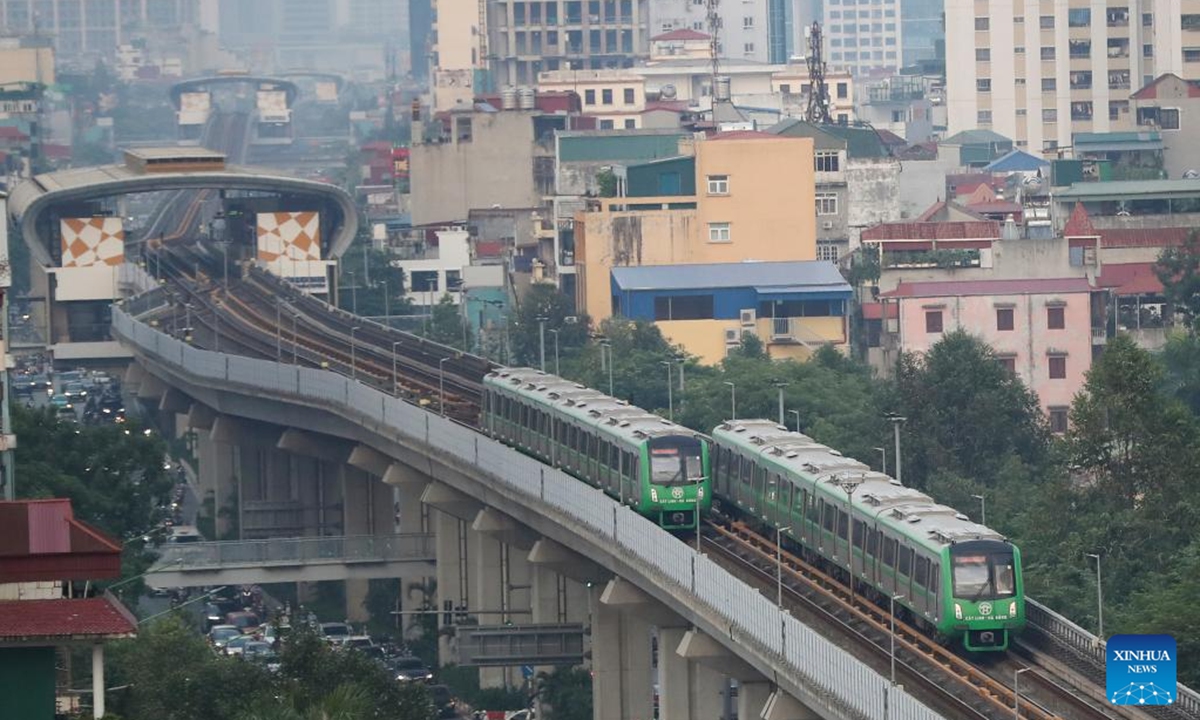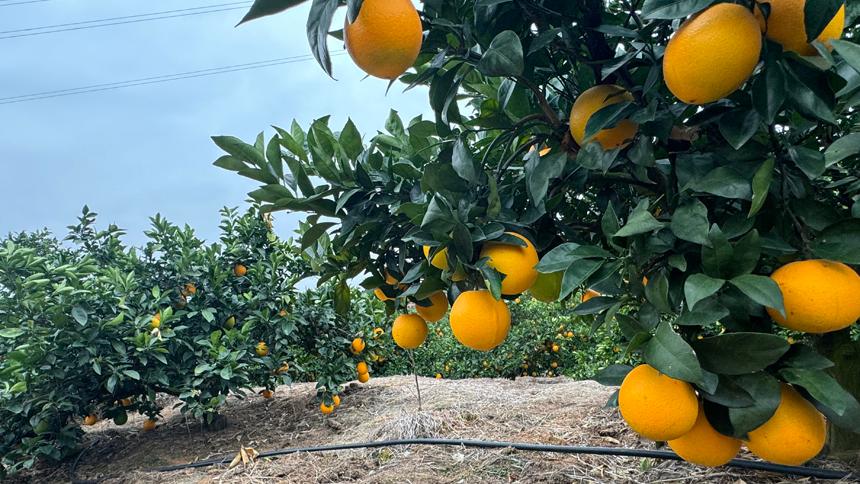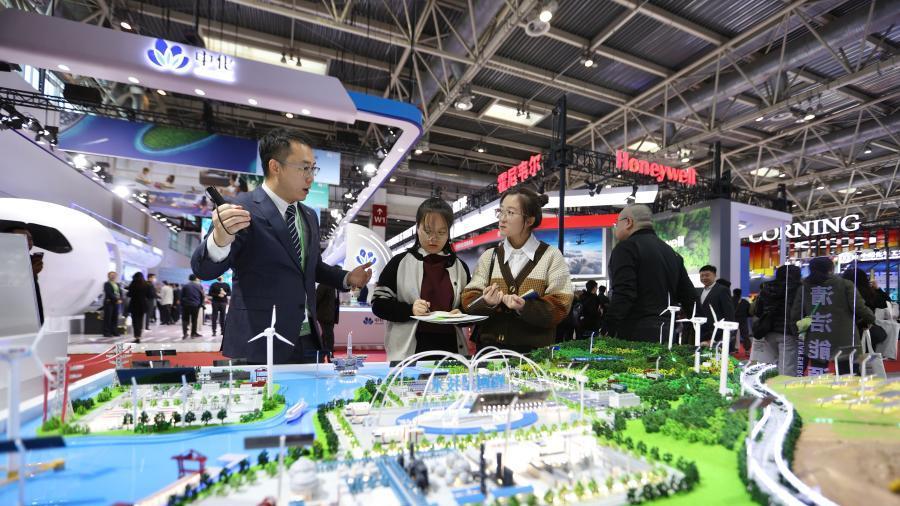Vietnam plans $67b high-speed railway project

Trains run on the Cat Linh-Ha Dong urban elevated railway in Hanoi, Vietnam, Oct. 9, 2024. The Cat Linh-Ha Dong urban elevated railway was built by the China Railway Sixth Group as an important project of the synergy of China's Belt and Road Initiative with Vietnam's "Two Corridors and One Economic Circle" plan. (Photo/Xinhua)
Vietnam on Saturday approved the construction of a high-speed railway connecting the capital Hanoi in the north to Ho Chi Minh City in the south at an estimated cost of $67 billion.
The railway, which will stretch more than 1,500 kilometers between the Vietnamese capital and the financial capital in the south, will reduce the current journey time by rail from 30 hours to around five, according to an AP report. New trains are expected to travel at a top speed of 350 kilometers per hour.
Chinese industry insiders and analysts on Sunday said Chinese companies could be strong bidders in the project, given China's comparative advantage in both the expertise and cost of the high-speed railway construction.
The decision was taken by Vietnam's National Assembly, its parliament.
"The national assembly voted to approve ... a resolution on investment policies for the high-speed railway project on the North-South axis," said a statement on the parliament's website.
Construction is expected to begin in 2027 and Vietnam hopes that the first trains will start operating by 2035, but the country has been beleaguered by delays to its previous infrastructure projects, according to AP.
The fresh progress of a project that is years in the making is welcome news for Chinese companies and experts.
"We have been following this proposed project for a long time," an industry insider from a Chinese company based in Vietnam told the Global Times on Sunday. "Though at this stage, without a pre-feasibility study, more details on how to carry out the project, including how to secure funding for it, which specific standards and technology route to adopt, are still scant."
"I think Chinese companies stand a chance of participating in the project, though we will have to wait and see what comes out down the road," said the person, who declined to be named.
"The Vietnamese side will try to strike a balance here," the person said. "If Chinese companies eventually take part as partial contractors, telecommunication, signaling, and electrical systems are expected to be the top areas of cooperation," the person said.
Southeast Asia has long been a competing ground for China and Japan, each offering its own high-speed railway technologies.
Xu Liping, director of the Center for Southeast Asian Studies at the Chinese Academy of Social Sciences, told the Global Times on Sunday that potential cooperation between China and Vietnam over the high-speed railway should be based on market principles and sustainability, as constructing a high-speed railway is a mega project that requires years to complete and vast financial resources.
"China's high-speed railway technologies are world leading, and Chinese companies have a comparative advantage in operational experience and cost management, and they should be able to offer competitive bids in a fair tendering process," Xu said, noting that China has accumulated rich experience in building railways in tropical environments and high mountains.
Industry insiders said the value of a high-speed railway connecting Hanoi and Ho Chi Minh City lies not only in boosting China-Vietnam infrastructure connectivity, but also in the further development of the Trans-Asian Railway (TAR) network in Southeast Asia, which is key to ensuring global supply chain stability amid rising geopolitical tensions. Vietnam sits at the TAR's eastern line.
Xu said Chinese companies will come up with bids that are tempting for Vietnamese project owners, and if the project is handed out to many contractors, Chinese companies will also play a vital role.
Photos
Related Stories
- Demand for Chinese-speaking professionals in Vietnam on the rise: report
- Chinese vice premier calls for expanded economic, trade cooperation with Vietnam
- China's first hexagonal transportation hub in Suzhou under construction
- Train pit stop: Reviving high-speed rail for a new day
- High-speed trains gear up for National Day Holiday travel rush
Copyright © 2024 People's Daily Online. All Rights Reserved.









